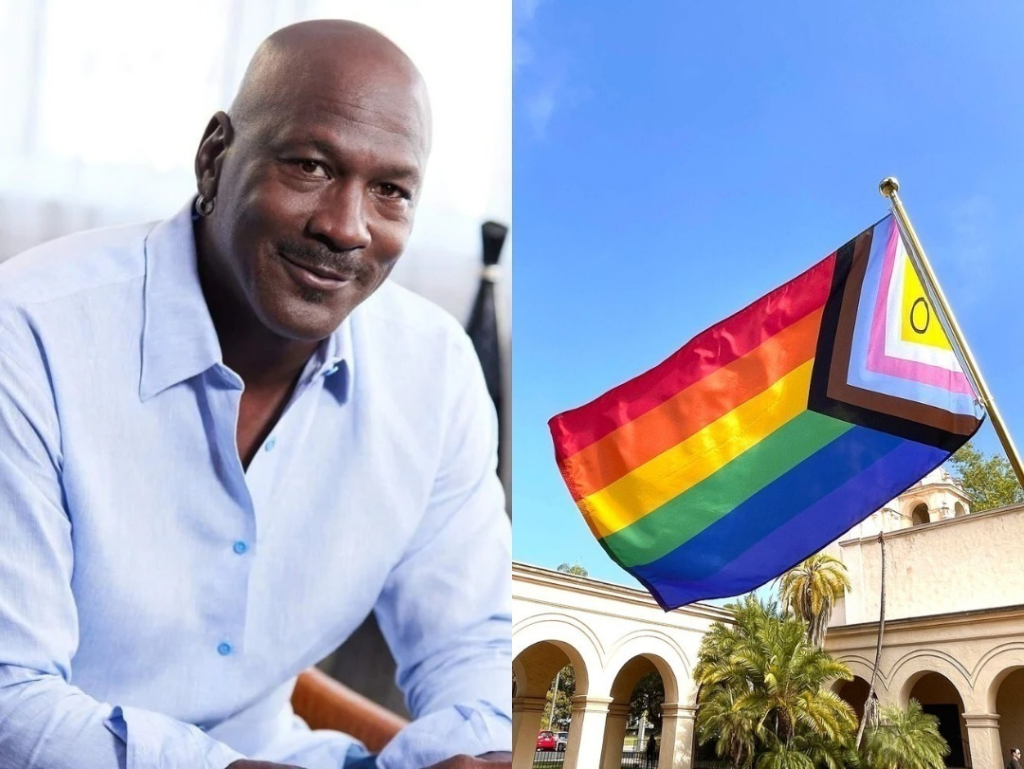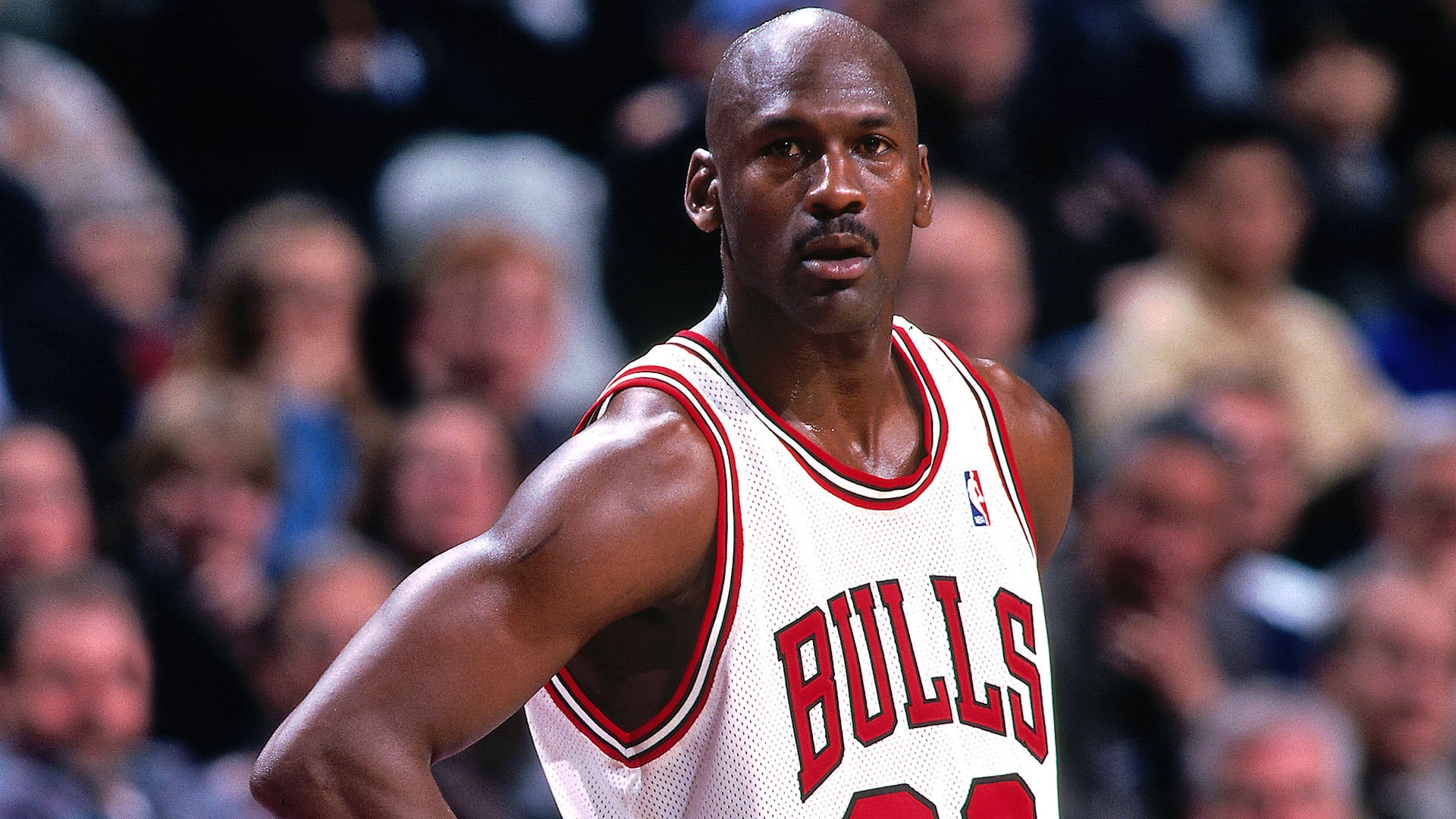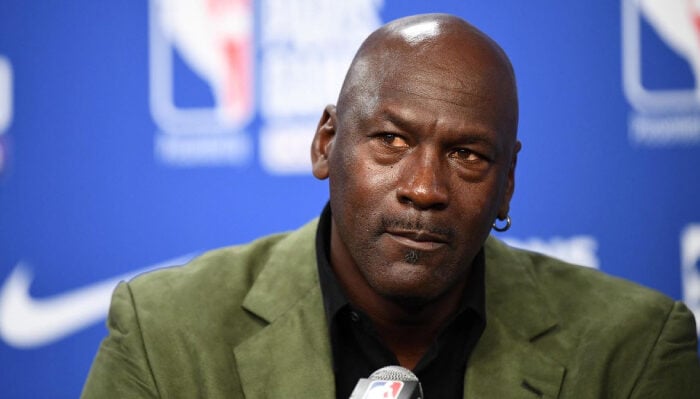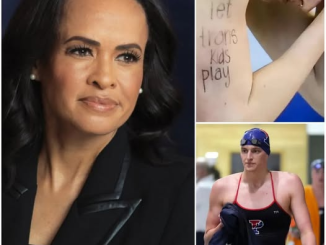
NBA legend Michael Jordan has sparked a nationwide controversy after reportedly calling for the Gay Pride flag to be raised in sports and schools. The statement from the six-time NBA champion and cultural icon has lit up social media, with fans praising his stance on traditional values while critics accuse him of promoting intolerance.
The long-awaited move by Jordan, known for his typically reserved political stance, has surprised fans and sparked heated debate over the role of symbols like the Pride flag in public spaces, particularly in educational institutions and sporting settings.

Jordan’s statement causes a stir
According to sources close to the basketball icon, Jordan recently expressed his doubts about the increasing visibility of Pride flags in both sports and schools. His comments suggest that he believes politics and social issues should remain separate from sports and education.
“Sports should be about competition, utility and ethics, not political statements,” Jordan said. “And schools should focus on education, not activism.”
While Jordan has not issued an official statement on the matter, the reported comments have been enough to fuel widespread reactions, dividing public opinion over whether symbols such as the Pride flag should be present in sports areas or educational settings.
The fans applauded his performance
Supporters of May of Jordan believe their stance reflects a broader sense that politics and activism have become too prevalent in areas such as sports and schools. They argue that Pride flags, while representing inclusivity, can be seen as political symbols that can alienate some people.
A Twitter user wrote:
“Michael Jordan is right. Let’s keep politics out of sport. People go to games to relax and enjoy the competition, not to be lectured.”
Conservative commentators have also weighed in, praising Jordan for speaking out at a time when hoodlum culture often silences public figures.
Fox News host Tucker Carlsson weighed in on the issue during a reception broadcast:
“Finally, someone with the courage to say what many of us are thinking. Sports and education should focus on their core missions, not on political issues.”

Critics accuse Jordan of intolerance
However, not everyone agrees with Jordan’s comments. LGBTQ+ rights groups have condemned his alleged comments, calling them harmful and outdated.
GLAAD President Sarah Kate Ellis released a statement in response:
“The Pride flag represents inclusion, diversity and everyone’s right to be themselves. To suggest it has a place in schools or sports is to deny the progress we have made towards equality.”
Critics argue that raising the Pride flag sends the wrong message, particularly to LGBTQ+ people who look to public figures for acceptance and inspiration.
NBA player and outspoken LGBTQ+ rights advocate Dwyape Wade weighed in on the controversy:
“It’s disappointing to hear something like that from someone as influential as Michael Jordan. Inclusion in sport is essential for the next generation to feel safe and accepted.”
The role of pride flags in sports and schools
The debate over Pride flags in public spaces is not new. In recent years, there has been a growing push to make sports and schools more inclusive environments for LGBTQ+ people. Many sports leagues, including the NBA, MLB, and NFL, have launched Pride-themed events and campaigns to promote inclusivity.
Schools across the United States have also adopted Pride flags as symbols of support for LGBTQ+ students. Some argue that these symbols create a safe and welcoming environment for students who might otherwise feel marginalized.
However, opponents argue that these efforts cross the line into political activism, which they say should be kept out of educational and sports settings.

What’s next for Michael Jordan?
As the controversy continues to mount, some may be wondering if Jordan will address the backlash or clarify his stance. Known for his typically apolitical stance throughout his career, this latest controversy marks a significant shift from his usual public image.
In a world where athletes and celebrities are increasingly expected to take political and social positions, Jordan’s comments have added fuel to the fire of an already divisive issue. Whether he decides to double down on his efforts or backtrack on his statements remains to be seen.
Now, one thing is certain: the conversation about Pride flags in public spaces is far from over. As more public figures weigh in on the issue, it’s clear that the debate over the intersection of sports, education and activism will eventually dominate the headlines.


